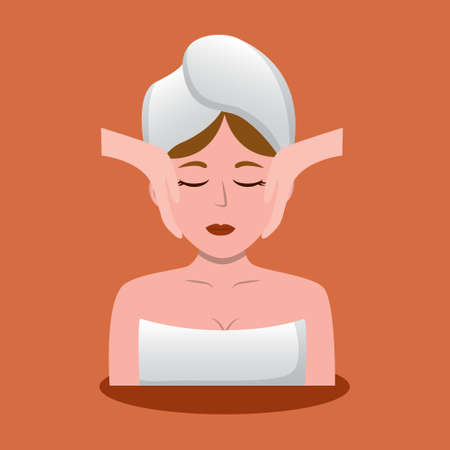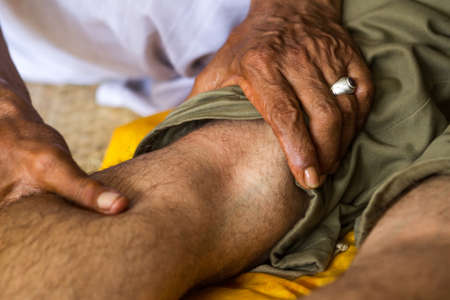Introduction: MS in the Indian Context
Multiple Sclerosis (MS) is a chronic, progressive neurological disorder that affects the central nervous system, leading to varying degrees of disability among patients. In India, the incidence and prevalence of MS have been steadily rising, with recent studies indicating an increasing number of diagnoses, particularly among young adults and women. The Indian context presents unique challenges in the management of MS due to diverse socio-economic backgrounds, limited access to specialised healthcare facilities, and lack of widespread awareness about the disease. Furthermore, cultural beliefs and stigma associated with neurological disorders often delay early diagnosis and optimal treatment. Many Indian patients also face financial constraints that hinder continuous access to modern medicines and rehabilitation services. These circumstances highlight the urgent need for cost-effective, culturally acceptable, and holistic approaches in MS management. Traditional Indian Medicine systems, especially Ayurveda, are deeply rooted in Indian society and offer complementary perspectives on health and rehabilitation. With their focus on balancing the mind, body, and spirit, these systems may play a significant role in addressing the complex needs of Indian MS patients. This article explores how Indian Traditional Medicine and Ayurveda contribute to comprehensive MS rehabilitation within the unique Indian milieu.
Foundations of Indian Traditional Medicine & Ayurveda
Indian traditional medicine, with Ayurveda at its core, stands as one of the worlds oldest holistic healing systems. Originating over 5,000 years ago, Ayurveda is deeply rooted in Indian culture and philosophy. Its guiding principle is the balance between body, mind, and environment, achieved by harmonising three fundamental energies or doshas: Vata, Pitta, and Kapha. This ancient science emphasises prevention, individualised treatment, and lifestyle modification to maintain optimal health. Over centuries, Ayurveda and other indigenous systems like Siddha and Unani have played a pivotal role in managing chronic diseases within the Indian population.
Key Principles of Ayurveda
| Principle | Description |
|---|---|
| Tridosha Theory | Balance of Vata (movement), Pitta (transformation), and Kapha (structure) ensures physical and mental well-being. |
| Prakriti (Constitution) | Each individual has a unique constitution determined by dosha dominance; therapies are tailored accordingly. |
| Panchakarma | Detoxification procedures that cleanse the body of accumulated toxins (Ama). |
| Rasayana | Rejuvenation therapies aimed at enhancing longevity and vitality. |
Historical Role in Chronic Disease Management
The historical legacy of Ayurveda in chronic disease management is notable across India. Ancient texts such as Charaka Samhita and Sushruta Samhita describe approaches for neurological disorders—parallels can be drawn with modern conditions like Multiple Sclerosis (MS). These approaches include herbal formulations, dietary regulations (Pathya-Apathya), yoga, meditation, and therapeutic massages. In rural as well as urban communities, Ayurvedic practitioners have long provided support for those living with long-term illnesses—offering not only symptom relief but also a sense of hope grounded in cultural familiarity.
The Integrated Approach: Bridging Tradition & Modernity
The Indian healthcare landscape today increasingly acknowledges the value of integrating traditional knowledge with contemporary rehabilitation practices. For MS rehabilitation specifically, Ayurvedas principles offer complementary perspectives on disease progression and patient care. By focusing on restoring balance and strengthening the bodys resilience, traditional Indian medicine provides culturally relevant support for individuals facing chronic neurological conditions.

3. Ayurvedic Concepts Relevant to MS
Ayurveda, the ancient Indian system of medicine, provides a unique and holistic framework for understanding health and disease, including neurodegenerative conditions like Multiple Sclerosis (MS). Central to Ayurvedic philosophy are the concepts of doshas (Vata, Pitta, Kapha) and prakriti (individual constitution), which guide both diagnosis and intervention.
Doshas and Their Role in Neurodegeneration
According to classical Ayurvedic texts such as the Charaka Samhita and Ashtanga Hridaya, the doshas govern various physiological and psychological functions. In the context of MS, there is particular emphasis on Vata dosha, which is associated with movement, nerve impulses, and communication within the body. Imbalance or aggravation of Vata is often linked with neurological symptoms such as muscle weakness, tremors, numbness, and instability—core features observed in MS patients. Pitta dosha may contribute to inflammatory processes, while Kapha imbalance might manifest as heaviness or sluggishness.
Prakriti: Individualized Approach
The concept of prakriti highlights that each person has a unique constitution influencing their susceptibility to diseases and response to therapies. Ayurveda recommends customized interventions for MS based on an individuals prakriti and doshic imbalances. This personalized approach aligns well with contemporary trends toward precision medicine in rehabilitation.
Ayurvedic Perspectives from Classical Texts
Ayurvedic literature describes neurodegenerative disorders under terms such as Kampavata, Pakwaghat, or Vatavyadhi. These conditions are characterized by derangement of Vata dosha affecting the nervous system. Treatments described include Panchakarma (detoxification therapies), use of herbal formulations like Ashwagandha and Brahmi, dietary modifications, and lifestyle practices tailored to restore doshic balance. The holistic focus on mind-body integration emphasizes not only physical but also psychological wellbeing—a key consideration in MS rehabilitation.
This Indian traditional medical perspective offers valuable insights into understanding MS pathogenesis and supports integrative rehabilitation approaches combining modern neurology with time-tested Ayurvedic principles.
Herbal & Dietary Approaches in MS Rehabilitation
Indian Traditional Medicine and Ayurveda offer a rich repertoire of herbal and dietary strategies specifically tailored for individuals living with Multiple Sclerosis (MS). These approaches aim to enhance functional outcomes, reduce symptom burden, and reflect the deep-rooted cultural practices prevalent across India. The use of medicinal herbs, rasayanas (rejuvenative formulations), and culturally appropriate dietary guidelines form an integral part of MS rehabilitation in the Indian context.
Commonly Used Indian Herbs in MS Care
| Herb Name | Ayurvedic Property | Potential Benefits for MS Patients | Cultural Usage |
|---|---|---|---|
| Ashwagandha (Withania somnifera) | Balya (strengthening), Rasayana (rejuvenative) | Reduces fatigue, supports nerve health, improves energy levels | Widely used in North & Central India as a tonic |
| Brahmi (Bacopa monnieri) | Medhya (brain tonic), Rasayana | Enhances cognitive function, reduces anxiety and stress | Commonly consumed in South Indian households as chutney or supplement |
| Guduchi (Tinospora cordifolia) | Immunomodulator, Rasayana | Boosts immunity, helps manage inflammation associated with MS relapses | Used pan-India in kadha (herbal decoctions) |
| Musta (Cyperus rotundus) | Pachana (digestive), Tridosha balancer | Aids digestion, reduces gastrointestinal symptoms often seen in MS | Traditional ingredient in Ayurvedic churnas and teas |
| Turmeric (Curcuma longa) | Kaphahara, Anti-inflammatory | Reduces neuro-inflammation, may alleviate joint pain and stiffness | Staple spice across all Indian cuisines; used daily in curries and milk (“haldi doodh”) |
Rasayanas: Rejuvenation Therapies in Ayurveda for MS Patients
Ayurveda’s concept of Rasayana focuses on promoting longevity, vitality, and resilience against disease. For MS rehabilitation, select rasayanas are recommended to restore nervous system balance and enhance quality of life. Chyawanprash, a herbal jam containing Amla (Indian gooseberry) and over 40 herbs, is widely prescribed for its antioxidant properties. Brahma Rasayana, another potent formulation, is traditionally administered to support cognitive health and reduce mental fatigue. These formulations are typically integrated into daily routines under the guidance of registered Ayurvedic practitioners.
Dietary Recommendations Tailored to Indian Culture for MS Rehabilitation
| Food Group/Practice | Cultural Preference/Example Dishes | Ayurvedic Rationale & MS Benefit |
|---|---|---|
| Sattvic Diet: (Fresh fruits, vegetables, whole grains, pulses) |
Dishes like khichdi, dal-rice, sabzi-roti (consumed pan-India) |
Easily digestible; supports gut health and energy stability crucial for MS patients. |
| Avoidance of Excessively Spicy/Oily Foods: | Mildly spiced preparations favored in therapeutic diets (e.g., lauki sabzi, moong dal khichdi) |
Prevents aggravation of symptoms like gastritis or heat intolerance seen in some MS patients. |
| Dairy Intake: | Lassi (North India), Buttermilk (“chaas”, West India), Ghee (clarified butter) across regions. | Dairy is considered nourishing (“balya”); ghee aids absorption of fat-soluble nutrients but should be moderated if lactose intolerance exists. |
| Use of Functional Spices: | Cumin, coriander, fennel seeds added to curries or teas (ubiquitous in all Indian kitchens) |
Aid digestion and reduce bloating – common issues with mobility impairment in MS. |
| Avoidance of Processed Foods: | Preference for home-cooked meals over packaged snacks. | Lowers risk of systemic inflammation that could trigger MS flare-ups. |
Culturally Sensitive Implementation Tips for Practitioners & Families:
- Encourage inclusion of traditional dishes using locally available vegetables and grains to maintain palatability while ensuring nutritional adequacy.
- Select herbs and rasayanas based on individual Prakriti (body constitution) as per Ayurvedic assessment.
- Collaborate with local dietitians familiar with regional cuisine for meal planning that respects food habits during festivals and fasting periods.
- Avoid abrupt dietary changes; gradual adaptation ensures better acceptance among patients and caregivers.
- Monitor for herb-drug interactions when patients are on allopathic medications alongside Ayurvedic therapies.
Towards Integrative Rehabilitation Practice:
The integration of herbal medicine and dietary modifications rooted in Indian tradition offers a holistic strategy for managing Multiple Sclerosis. By respecting local culture while drawing on evidence-based practice from Ayurveda and nutrition science, rehabilitation professionals can empower MS patients to achieve improved physical function, mental well-being, and community participation within their unique socio-cultural context.
5. Yoga, Pranayama, and Physical Rehabilitation
Integrating Yogic Practices for MS Recovery
In the Indian context, yoga and pranayama have been integral to health and well-being for centuries. Recent evidence has highlighted their potential benefits in the rehabilitation of Multiple Sclerosis (MS) patients. Yoga, a holistic practice rooted in Indian tradition, combines physical postures (asanas), breathing techniques (pranayama), and meditation. These components are increasingly being incorporated into rehabilitation protocols to improve functional outcomes and manage symptoms among individuals with MS.
Evidence-Based Benefits of Yoga in MS
Several clinical studies conducted in India and globally have demonstrated that regular yoga practice can lead to improvements in balance, mobility, muscle strength, and flexibility in people living with MS. For example, research published in the International Journal of Yoga found that a structured yoga intervention significantly reduced fatigue and enhanced quality of life in MS patients. Additionally, yoga is associated with reduction in spasticity and improved mood, both of which are crucial for daily functioning.
The Role of Pranayama
Pranayama, the ancient art of controlled breathing, is known to modulate autonomic nervous system function. Studies specific to MS populations suggest that pranayama practices such as Anulom Vilom (alternate nostril breathing) and Bhramari (humming bee breath) can decrease anxiety levels and promote relaxation. This is especially relevant given the high prevalence of psychological distress among MS patients in India.
Traditional Indian Exercise Regimes
Beyond yoga and pranayama, traditional Indian exercise forms like Surya Namaskar (Sun Salutation) and dynamic asanas are being explored for their role in enhancing neuromuscular coordination and cardiovascular fitness. When integrated into physiotherapy routines, these exercises offer culturally acceptable options that resonate deeply with Indian patients, potentially increasing adherence to rehabilitation programs.
Cultural Relevance and Accessibility
The accessibility of yoga centres and the widespread acceptance of yogic practices across India make them practical adjuncts to conventional rehabilitation therapies. Moreover, many community-based organisations and Ayurveda practitioners now collaborate with neurologists to deliver integrative care models tailored for MS patients.
Conclusion: Towards Integrative Functional Recovery
The inclusion of yoga, pranayama, and traditional Indian exercise regimes within multidisciplinary rehabilitation frameworks holds significant promise for improving functional recovery and symptom management in MS. Ongoing research from Indian institutions continues to validate these approaches, supporting their integration into mainstream clinical practice for holistic patient care.
6. Community and Family Involvement
In the context of Multiple Sclerosis (MS) rehabilitation in India, the role of community and family support is both unique and essential. Traditional Indian values emphasise collective well-being, where families and communities come together to support individuals during illness or disability. This strong social fabric plays a pivotal role in the recovery and emotional resilience of MS patients.
The Significance of Social Support
Social support from family members, neighbours, and local community groups significantly enhances rehabilitation outcomes for MS patients. Indian families often provide round-the-clock care, ensuring medication adherence, facilitating access to traditional therapies like Ayurveda, and offering constant emotional encouragement. Community groups such as local temples, yoga clubs, or women’s self-help groups also participate by organising awareness programmes and providing practical assistance.
Integration with Traditional Medicine
Indian traditional medicine systems like Ayurveda are often practiced within the family setting. Home-based Ayurvedic remedies, dietary practices passed down through generations, and rituals such as oil massages become integral parts of daily care for MS patients. These approaches are not only therapeutic but also strengthen family bonds, reinforcing the holistic healing process promoted by Ayurveda.
Cultural Sensitivity in Rehabilitation
Rehabilitation professionals working in India must understand and respect these cultural dynamics. Involving family members in therapy sessions, educating caregivers about MS management, and encouraging participation in community rituals can improve adherence to both conventional and Ayurvedic treatment plans. Such culturally sensitive strategies lead to better patient engagement, lower levels of isolation, and improved quality of life.
The Role of Community Practices
Community practices such as group yoga classes or meditation sessions led by local gurus can foster a sense of belonging and motivation among MS patients. These gatherings not only provide physical benefits aligned with Ayurvedic principles but also offer psychological reassurance through shared experiences. The collective approach seen in Indian society creates an environment where MS patients feel supported at every stage of their rehabilitation journey.
Overall, the synergy between Indian traditional values, Ayurveda, and robust social support systems makes community and family involvement a cornerstone of successful MS rehabilitation in India.
7. Integrative Model and Future Directions
India’s healthcare landscape is uniquely positioned to benefit from an integrative approach that combines the wisdom of Ayurveda and Indian Traditional Medicine (ITM) with modern physiotherapy and rehabilitation medicine, especially in the management of Multiple Sclerosis (MS). The integration of these systems can offer personalised, holistic care that addresses not only the physical symptoms but also the mental and emotional well-being of patients.
Suggestions for Integration
To effectively blend Ayurveda with contemporary rehabilitation practices, it is essential to develop structured protocols that ensure safety, efficacy, and cultural relevance. First, multidisciplinary teams comprising Ayurvedic physicians, neurologists, physiotherapists, and occupational therapists should collaborate to design patient-centric care plans. Second, standardising assessment tools that evaluate both biomedical and Ayurvedic parameters will help track patient progress more comprehensively. Third, incorporating Yoga, Panchakarma therapies, herbal medicines, and dietary interventions alongside physiotherapy can enhance neuro-rehabilitation outcomes by promoting muscle strength, flexibility, and reducing fatigue.
Education and Training
For successful integration, it is crucial to promote cross-disciplinary education among medical professionals. This could involve including modules on Ayurveda in physiotherapy curricula and vice versa. Workshops, seminars, and joint conferences can foster mutual understanding and respect for each system’s strengths.
Emerging Research and Innovations
Recent research in India highlights promising results from integrative approaches for MS management. Clinical trials are underway examining the effects of Rasayana therapy (rejuvenation), medhya dravyas (nootropic herbs), and yoga-based interventions on MS-related fatigue, spasticity, and quality of life. Digital health platforms are being developed to monitor symptoms remotely while offering tailored Ayurvedic advice. Further investment in research infrastructure—especially large-scale randomised controlled trials—will help validate these traditional therapies using scientific methodologies accepted worldwide.
The future of MS rehabilitation in India lies in embracing a culturally sensitive, integrative model that leverages the best of both worlds—Ayurveda’s holistic principles and the technological advances of contemporary medicine. With collaborative efforts in research, training, and clinical practice, India can set a global benchmark for comprehensive neurorehabilitation strategies tailored to its diverse population.

